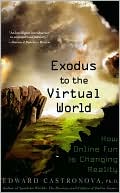Portal 2 remained dormant in my cabinet far longer than I ever expected it would. I regret this. It doesn’t deserve to be treated that way, no great game does.
While GlaDOS waited patiently, accumulating dust and slipping ever so quickly into the back of mainstream culture, I played L.A. Noire. I thought it would be quick. I assumed it would be a couple weeks, at the most, of me busting bad guys, wearing fedoras, and marveling at post-World War II Los Angeles. And it was all that and more, for a while — before my interest in the game plummeted off a cliff, dragging my freedom to play other games down with it.
This has always been a problem for me. As I grew up I had it hammered into me that you don’t quit something you’ve already started and made a commitment to. If I joined a soccer team and didn’t like it, that was too bad. I was going to finish out the season, whether I liked it or not. It was a good life lesson that has stuck with. However, sometimes it materializes in ways that it was not intended.
My obligation to L.A. Noire came from the fact that it starts off as a great game. While playing through the homicide cases, I was primed to gush about it being my favorite game of the year. It was a great story arc, the only one the game needed. It was so good that carrying on after that was destined to be a letdown. The cliff was built into the game. I had no chance of avoiding it.
Once Cole Phelps transferred to vice, the game was no longer compelling to me. Yet, I trudged forward. Whether it was obligation, or denial that the game was no longer interesting, I kept playing. I finished the vice desk, did my thing in arson cases, and just kept pushing forward, hoping evermore that the game would conclude. But, each case started taking more and more real world time. My interest was fading. And slowly, I just stopped playing altogether.
Weeks went by without me progressing. But, it continued to hold my console’s tray hostage. No other single player games were allowed in until a conclusion was reached with this one (I was still playing some co-op every Saturday — my only gaming during this time).
Finally, I pushed through the blockage. I reached a conclusion. L.A. Noire had to go. It was time for Portal 2.
In the sharpest of contrasts, I blew through Portal 2’s single player campaign in a week. It’s a fairly common stance to love Portal, so I won’t waste your time gushing. There is one experience that I want to share, though. A small, highly insignificant achievement I earned along the way might be the most memorable moment of the entire game. I’m not even sure if the term, “achievement” describes it accurately. It was more of a notification of an action. But to be perfectly honest, it was a flat out mocking of my gameplay. The achievement was meant to laugh in the face of the player for blindly following the game and its narrators, for trusting in the instinct the player has built over years of gaming. My actions were automated. I have no recollection of making a choice; my thumbs just did it. And, the game reacts with an achievement cackle.

Most achievements are bread crumbs to reinforce the player that they’re doing the right thing. Or, they exist to superficially enhance a game’s replay value. They are not utilized as a creative aspect of a game capable of delivering its own unique experience. They’re one off blips at the bottom of my screen that increase my gamerscore. Not this achievement, however. It served a greater purpose within Portal 2’s narrative. It left me laughing, shaking my head, and slightly embarrassed — which means I was happy my wife wasn’t there to razz me about my ineptitude. But it also showed me that achievements can be more, and should be more. With a simple 5 point achievement, Valve has changed my perspective of what achievements can accomplish.


